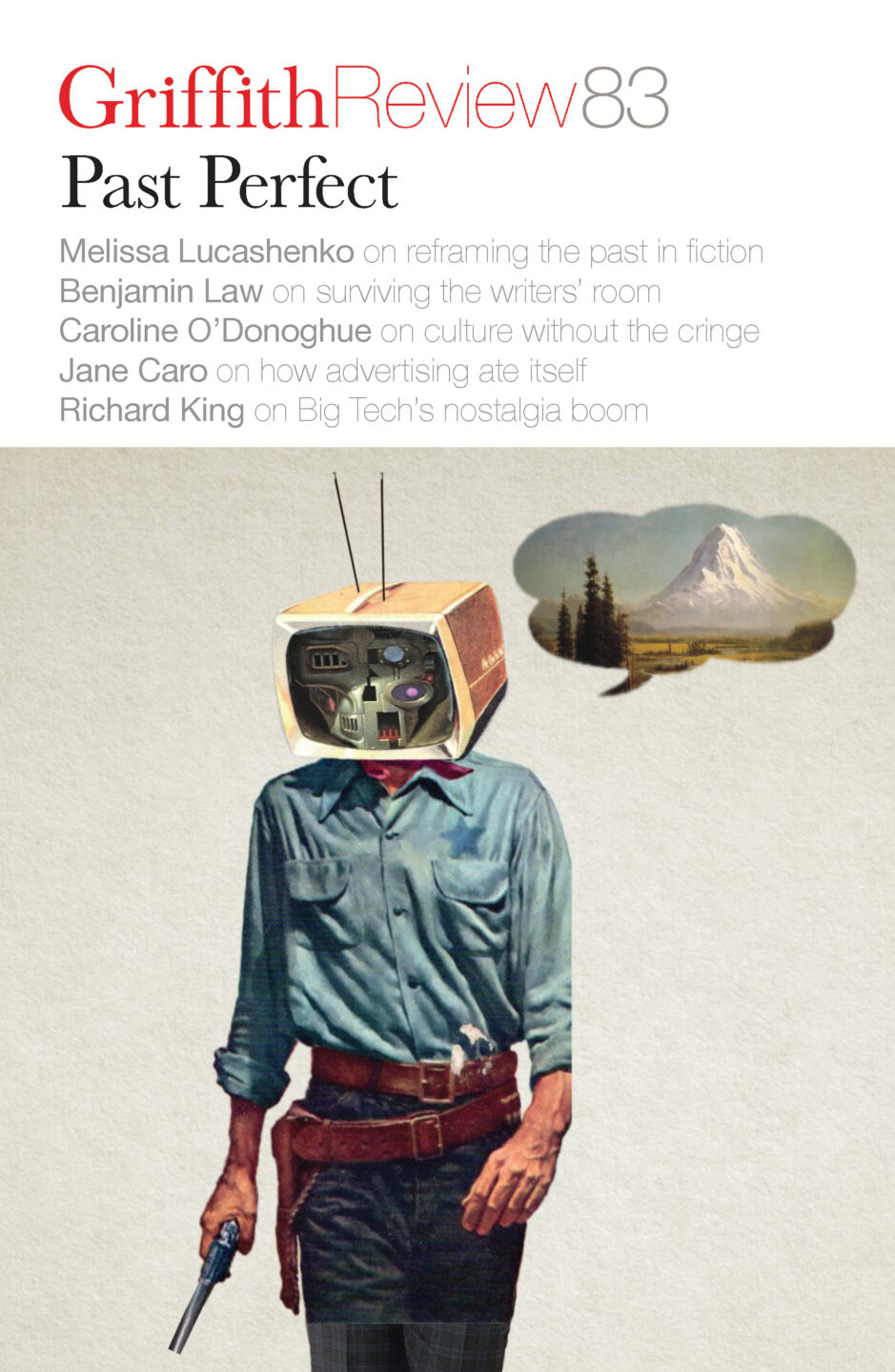Featured in

- Published 20240206
- ISBN: 978-1-922212-92-4
- Extent: 204pp
- Paperback, ePub, PDF, Kindle compatible


Already a subscriber? Sign in here
If you are an educator or student wishing to access content for study purposes please contact us at griffithreview@griffith.edu.au
Share article
About the author

Jane Caro
Jane Caro AM was an award-winning advertising copywriter for thirty-five years. She also taught advertising at the University of Western Sydney for seven years...
More from this edition

Things come together
Poetry After a photo by Annie Leibovitz of Johnny Cash with his grandson Joseph, Rosanne Cash and June Carter Cash, Hiltons, Virginia, 2001 It only takes...

Which way, Western artist?
Non-fiction Michael Zavros, Bad Dad 2013, oil on canvas, 110 x 150 cm INSIDE YOU THERE are two wolves. Their names are Mark Fisher and Camille...

Mildew on the whiteness of Hölderlin
Poetry Mildew on the whiteness of Hölderlin’s shoulders, his phantom limb reaching towards an ideal he is sure he’ll reach. When the snow comes I am not even sure...